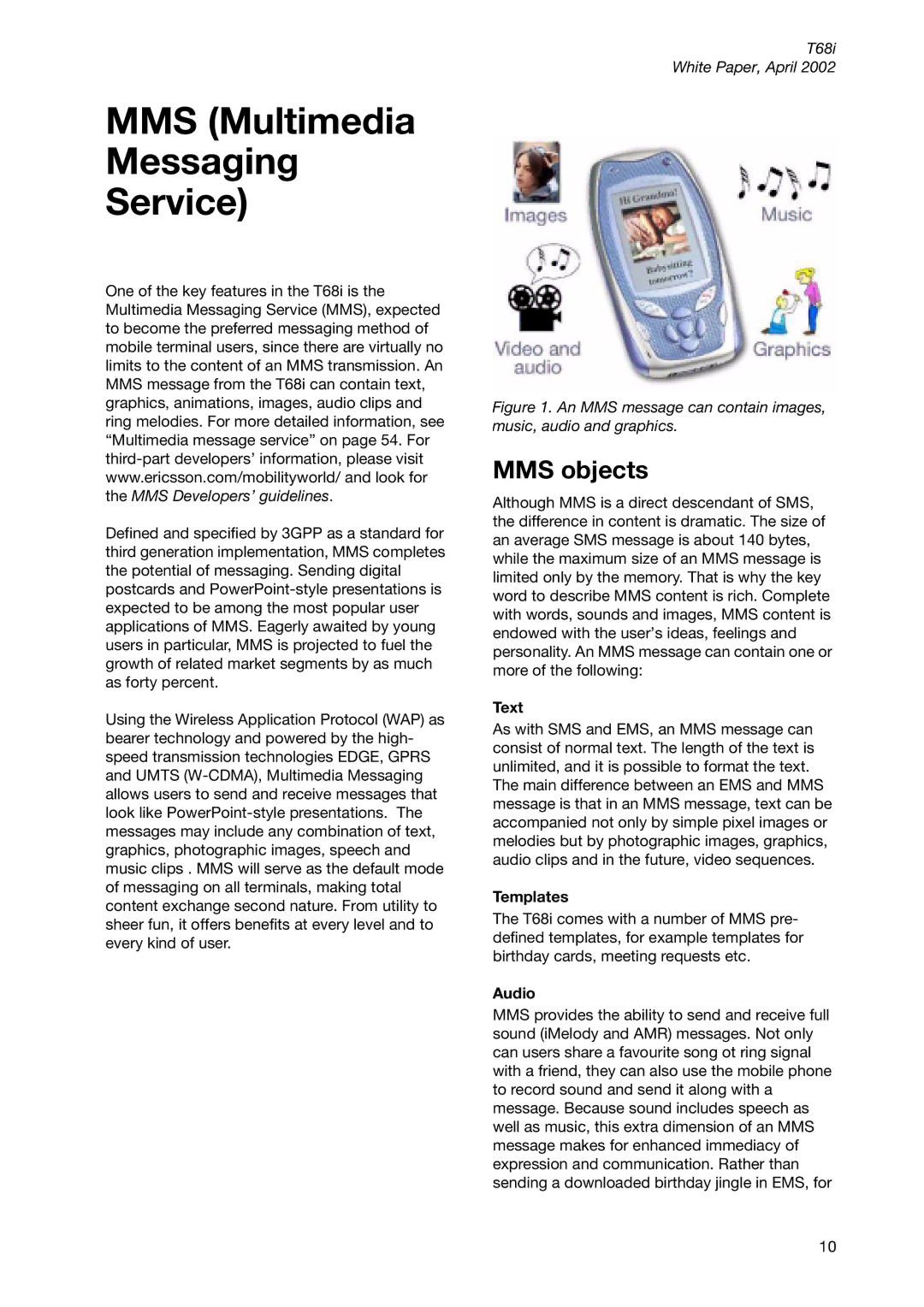
MMS (Multimedia
Messaging
Service)
One of the key features in the T68i is the Multimedia Messaging Service (MMS), expected to become the preferred messaging method of mobile terminal users, since there are virtually no limits to the content of an MMS transmission. An MMS message from the T68i can contain text, graphics, animations, images, audio clips and ring melodies. For more detailed information, see “Multimedia message service” on page 54. For
Defined and specified by 3GPP as a standard for third generation implementation, MMS completes the potential of messaging. Sending digital postcards and
Using the Wireless Application Protocol (WAP) as bearer technology and powered by the high- speed transmission technologies EDGE, GPRS and UMTS
T68i
White Paper, April 2002
Figure 1. An MMS message can contain images, music, audio and graphics.
MMS objects
Although MMS is a direct descendant of SMS, the difference in content is dramatic. The size of an average SMS message is about 140 bytes, while the maximum size of an MMS message is limited only by the memory. That is why the key word to describe MMS content is rich. Complete with words, sounds and images, MMS content is endowed with the user’s ideas, feelings and personality. An MMS message can contain one or more of the following:
Text
As with SMS and EMS, an MMS message can consist of normal text. The length of the text is unlimited, and it is possible to format the text.
The main difference between an EMS and MMS message is that in an MMS message, text can be accompanied not only by simple pixel images or melodies but by photographic images, graphics, audio clips and in the future, video sequences.
Templates
The T68i comes with a number of MMS pre- defined templates, for example templates for birthday cards, meeting requests etc.
Audio
MMS provides the ability to send and receive full sound (iMelody and AMR) messages. Not only can users share a favourite song ot ring signal with a friend, they can also use the mobile phone to record sound and send it along with a message. Because sound includes speech as well as music, this extra dimension of an MMS message makes for enhanced immediacy of expression and communication. Rather than sending a downloaded birthday jingle in EMS, for
10
